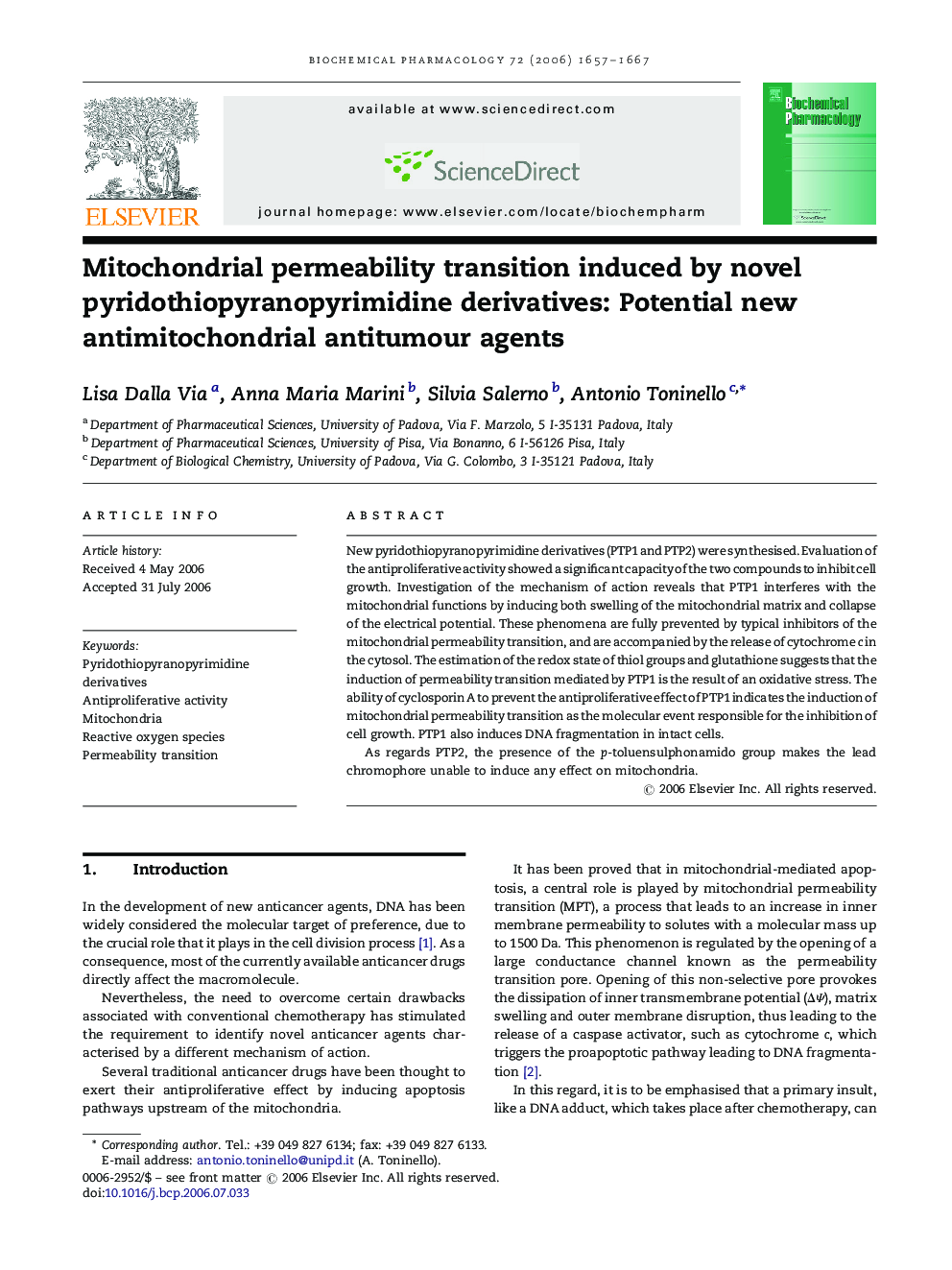| Article ID | Journal | Published Year | Pages | File Type |
|---|---|---|---|---|
| 2514972 | Biochemical Pharmacology | 2006 | 11 Pages |
New pyridothiopyranopyrimidine derivatives (PTP1 and PTP2) were synthesised. Evaluation of the antiproliferative activity showed a significant capacity of the two compounds to inhibit cell growth. Investigation of the mechanism of action reveals that PTP1 interferes with the mitochondrial functions by inducing both swelling of the mitochondrial matrix and collapse of the electrical potential. These phenomena are fully prevented by typical inhibitors of the mitochondrial permeability transition, and are accompanied by the release of cytochrome c in the cytosol. The estimation of the redox state of thiol groups and glutathione suggests that the induction of permeability transition mediated by PTP1 is the result of an oxidative stress. The ability of cyclosporin A to prevent the antiproliferative effect of PTP1 indicates the induction of mitochondrial permeability transition as the molecular event responsible for the inhibition of cell growth. PTP1 also induces DNA fragmentation in intact cells.As regards PTP2, the presence of the p-toluensulphonamido group makes the lead chromophore unable to induce any effect on mitochondria.
